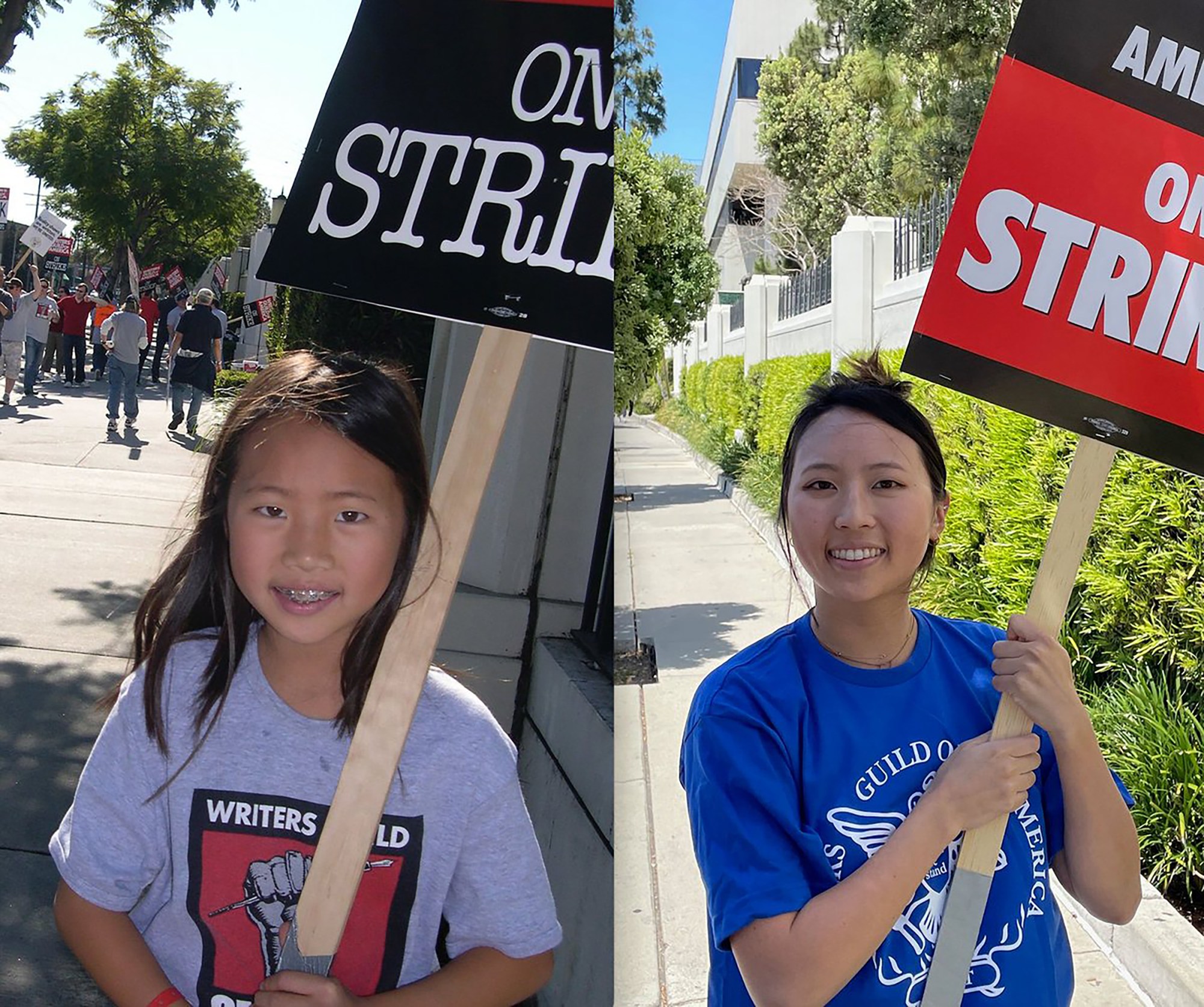
- Industry
Asian Screenwriters Hoping for Change
While the Writer’s Strike marches on with no end in sight affecting over 20,000 writers in the Writers Guild of America, one such writer is Albert Kim, showrunner, Executive Producer and writer of Avatar: The Last Airbender, Sleepy Hollow, and Nikita. For Kim, the apple doesn’t fall far from the tree. His daughter Emily, who joined him on the picket line during the strike in 2007 at the age of 9, now in her 20s, is a bonafide writer-producer responsible for Incoming Mail, and Prom Night at the Vagabond. Emily is currently a strike captain, fighting for her own rights, as well as future generations, as a screenwriter. Here are some other writers hoping for change.
Malaysian-born Adele Lim is known for the Golden Globe-winning film Crazy Rich Asians (2018), based on the best-selling novel by Kevin Swan. She began her career as a script coordinator for Xena: Warrior Princess and has written for such TV series as One Tree Hill, Life Unexpected, Reign, Star-Crossed, Private Practice, and Lethal Weapon. Lim reportedly left the Crazy Rich Asians sequel after she discovered her writing partner, Peter Chiarelli, was offered a significantly higher salary. She then developed the animated feature Raya and the Last Dragon (2021) alongside Qui Nguyen. Her most recent work was as part of the writing team on Joy Ride, released earlier this year. Lim has given support to young writers as a mentor and speaker for the Coalition of Asian Pacifics in Entertainment.
Five-time Golden Globe and three-time Oscar winner, Ang Lee, a Taiwanese filmmaker, is known for such films as Eat Drink Man Woman (1994), Sense and Sensibility (1995), The Ice Storm (1997), Crouching Tiger, Hidden Dragon (2000), Brokeback Mountain (2005), Lust, Caution (2007), and Life of Pi (2012). While he has collaborated with screenwriters on his films, he is known mainly as a director, though he co-wrote the screenplays for Crouching Tiger, Hidden Dragon, as well as Brokeback Mountain. Other writing credits include Tortilla Soup (2001), Siao Yu (1995), Eat Drink Man Woman (1994), The Wedding Banquet (1993), and Pushing Hands (1991).
Chinese-American filmmaker Lulu Wang is best known for her Golden Globe-winning 2019 film, The Farewell. She struggled to find financing for the film and when it was suggested to her that she cast a prominent white actor, she stood her ground. As the story is based on her own life, she insisted that it remain authentic. Against the odds, the film, with a modest budget of $3 million, took in $23.1 million at the box office and earned Wang many accolades. She began her career as a journalist before trying her hand at screenwriting which included a short film in 2014, Posthumous. After The Farewell, she released a short film on Apple TV+ called Nian, celebrating the 2021 Chinese New Year. Her next project, Children of the New World is based on Alexander Weinstein’s collection of sci-fi stories.
Cary Joji Fukunaga is a Japanese-American filmmaker who made his debut with Sin Nombre, which he wrote and directed in 2009, and which earned numerous accolades for his first effort. He is primarily known for Beasts of No Nation (2015) which he adapted from the novel by Uzodinma Iweala. Other screenwriting credits include The Dark Tower (2017), based on Stephen King’s novel. He also adapted King’s famously successful horror story “It.” Fukunaga is also credited as a co-writer on the James Bond film No Time to Die (2021). Prior to feature films, he wrote screenplays which include Kofi (2003), and Victoria para chino (2004).
Amina Munir is known for writing the TV series Never Have I Ever (2020), LA to Vegas (2018), and Happy Together (2018), and more recently, Mr. Mayor (2021 – 2022). The Indian American screenwriter and producer told Vogue India that she enjoys writing comedy because ‘it takes the sting off painful truths.’ She also said, “I think of the times I’ve felt betrayed by portrayals of South Asian women in Hollywood who are either oppressed and/or too academically focused,” she said. “So, naturally, I am tempted and drawn to messy and complex characters—women who embody good intentions but bad decision-making, women who get to be human and experience a spectrum of emotions.”

